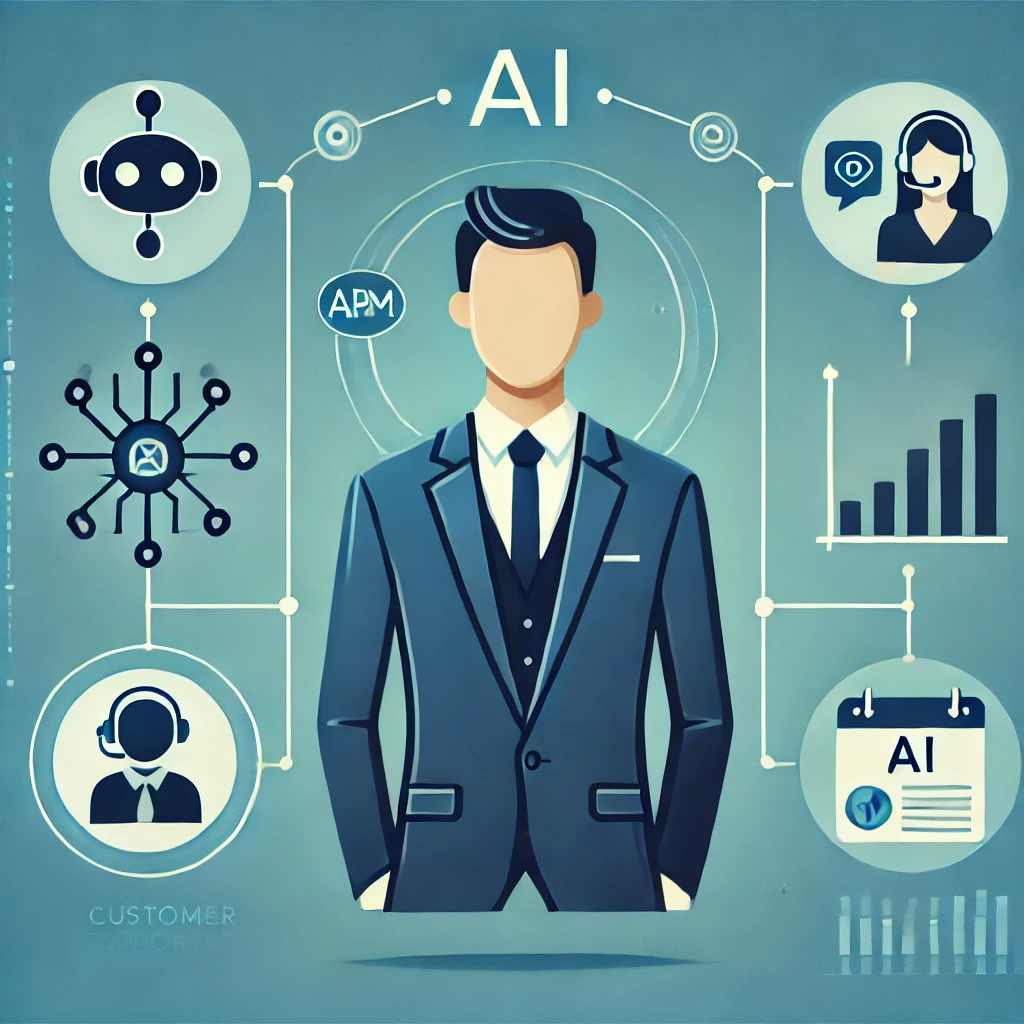The Role of AI in Enhancing Customer Relationship Management

In today’s competitive business environment, customer satisfaction and retention have become more crucial than ever. Companies are constantly seeking ways to improve their relationships with customers, personalize interactions, and streamline processes. This is where Artificial Intelligence (AI) comes into play. AI has revolutionized Customer Relationship Management (CRM) by enabling businesses to better understand customer behavior, predict their needs, and deliver more personalized and efficient services. This article explores how AI is enhancing CRM and transforming the way businesses manage their customer relationships.
1. AI in Personalizing Customer Interactions
One of the most significant ways AI is impacting CRM is through the personalization of customer interactions. Traditionally, businesses have used CRM systems to store customer information and track interactions. However, AI takes this to a new level by analyzing customer data, such as purchase history, browsing behavior, demographics, and social media activity, to provide a 360-degree view of each customer.
AI-powered CRM systems can identify patterns in customer behavior and segment customers based on their preferences, needs, and buying habits. This segmentation allows businesses to create highly personalized experiences, from targeted marketing campaigns to customized product recommendations.
For example, e-commerce platforms like Amazon use AI to suggest products based on previous purchases and browsing behavior. Similarly, streaming services like Netflix leverage AI to recommend shows and movies based on viewing history, ensuring a personalized and engaging experience for each user.
2. Predictive Analytics for Customer Insights
AI’s ability to process and analyze vast amounts of data enables businesses to gain valuable insights into customer behavior. Predictive analytics, powered by machine learning algorithms, can forecast future customer actions, such as which products they are likely to purchase or when they might churn.
By analyzing historical data and identifying trends, AI can predict the likelihood of a customer making a purchase, engaging with content, or even leaving a service. This allows businesses to proactively address potential issues and take preemptive actions to retain customers. For instance, if a customer is likely to churn, AI can trigger personalized retention campaigns, such as special offers or targeted content, to keep the customer engaged.
Predictive analytics can also help businesses optimize their sales and marketing strategies. For example, AI can analyze past interactions with customers to determine the best time to send an email or offer a discount, increasing the chances of conversion.
3. AI-Powered Chatbots and Virtual Assistants
AI-powered chatbots and virtual assistants are transforming how businesses communicate with customers. These tools use natural language processing (NLP) and machine learning to understand and respond to customer queries in real-time, providing instant support and improving the overall customer experience.
Chatbots can handle a wide range of tasks, from answering frequently asked questions to assisting with product recommendations and order tracking. By automating these interactions, businesses can offer 24/7 customer service without the need for human intervention, reducing response times and improving efficiency.
Virtual assistants go a step further by providing personalized assistance. For instance, virtual assistants can use AI to remember customer preferences, such as previous purchases or preferred communication channels, and use this information to tailor future interactions. This level of personalization enhances the customer experience and strengthens the relationship between businesses and their customers.
4. Enhancing Sales and Lead Generation
AI is also revolutionizing sales and lead generation by helping businesses identify high-quality leads and automate sales processes. AI-powered CRM systems can analyze customer data to identify potential leads who are most likely to convert, based on factors such as demographics, behavior patterns, and past interactions.
For instance, AI algorithms can help sales teams prioritize leads by predicting which prospects are more likely to make a purchase. This allows sales representatives to focus their efforts on high-value opportunities, improving productivity and increasing sales conversion rates.
AI also plays a crucial role in automating repetitive tasks, such as data entry, lead nurturing, and follow-ups. By automating these tasks, sales teams can focus on more strategic activities, such as building relationships with leads and closing deals. Moreover, AI can help identify cross-selling and upselling opportunities by analyzing customer purchase history and suggesting complementary products or services.
5. Customer Sentiment Analysis
Understanding customer sentiment is essential for businesses to gauge how their customers feel about their products, services, and brand. AI-powered sentiment analysis tools use NLP and machine learning to analyze customer feedback, reviews, social media posts, and other forms of communication to determine the overall sentiment—whether positive, negative, or neutral.
By analyzing customer sentiment, businesses can identify areas where they are excelling and areas that need improvement. For example, if customers consistently express frustration with a particular product or service, businesses can address these issues before they escalate. Conversely, positive sentiment can be leveraged to enhance brand loyalty and improve customer satisfaction.
Sentiment analysis can also be used to monitor social media conversations in real-time, allowing businesses to respond quickly to customer concerns, engage with brand advocates, and manage their online reputation.
6. Automation of Customer Service Processes
AI is helping businesses automate various customer service processes, making it easier to resolve issues quickly and efficiently. Automation reduces the burden on customer service teams, allowing them to focus on more complex queries and tasks. By automating routine tasks, businesses can provide faster responses, reduce wait times, and enhance the overall customer experience.
AI-driven solutions like chatbots, voice assistants, and automated ticketing systems can handle a wide range of customer service inquiries, such as order status, account information, and troubleshooting. These systems can also learn from previous interactions to improve their responses over time, ensuring that customers receive more accurate and helpful information.
Automation also benefits businesses by improving operational efficiency. By reducing the need for manual intervention, businesses can lower costs and ensure a more seamless customer service experience.
7. Enhancing Customer Retention with AI
Customer retention is a key focus for businesses looking to build long-term relationships with their clients. AI helps enhance customer retention by enabling businesses to predict customer behavior, identify at-risk customers, and take proactive steps to improve loyalty.
For instance, AI can predict when a customer is likely to churn based on past behavior, such as reduced engagement or dissatisfaction with a product. Businesses can then take targeted actions, such as offering discounts, personalized communication, or loyalty rewards, to retain those customers.
AI can also help improve the customer journey by identifying pain points and streamlining processes. For example, AI can recommend product improvements based on customer feedback, ensuring that businesses continue to meet customer needs and expectations.
8. Data Security and Privacy
As businesses collect and analyze vast amounts of customer data, ensuring data security and privacy is paramount. AI can help protect customer data by detecting potential security threats, such as fraud or unauthorized access, in real-time.
Machine learning algorithms can be trained to identify unusual patterns of behavior, such as fraudulent transactions or suspicious account activity. When a potential threat is detected, AI can trigger alerts, lock accounts, or take other actions to protect sensitive information. This enhances customer trust and ensures compliance with data protection regulations, such as GDPR.
Conclusion
AI is playing an increasingly important role in enhancing Customer Relationship Management by enabling businesses to better understand, engage, and retain their customers. Through personalized interactions, predictive analytics, chatbots, sentiment analysis, and automation, AI is transforming the way companies manage customer relationships. By leveraging AI, businesses can provide a more efficient, personalized, and seamless customer experience, ultimately leading to improved customer satisfaction, loyalty, and long-term success. As AI technology continues to evolve, its potential to revolutionize CRM will only grow, making it an essential tool for businesses looking to stay competitive in today’s digital-first world.






